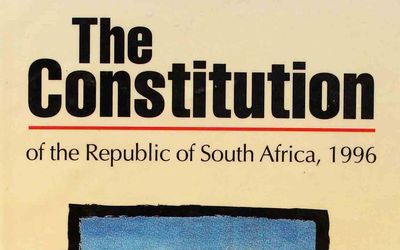IT IS not about sugar, tobacco, homeopathy, fat, salt, additives, cosmetics, colorants, faith healing, traditional medicine, liquor, social cost, baby food, junk food, unhealthy living, obesity, excessive TV, sedentary behaviour, tyres, sin, or whatever else that causes the jowls of lifestyle fascists to dribble gleefully when new measures are announced. It is about dignity, equality, liberty and consumer rights.
My criticism in last week’s column of the "sugar tax" generated much feedback and confusion. During ensuing media interviews and debates, callers and hosts who condone lifestyle despotism babbled on about the supposed costs people who supposedly choose supposedly unhealthy lifestyles supposedly impose on "society". I knew that getting control freaks to respect compatriots was difficult, but had no idea how difficult it would be to get them to understand a simple principle. It is one thing to oppose liberty and equality, but another to be unaware of what they are.
A pro-sugar tax caller denounced the new "tyre tax" because it penalises road safety. While agreeing with her pragmatic observation, I presented the principled argument against fiscal discrimination. In response to an earlier column, one of the brightest libertarians I know criticised my defence of smokers’ rights. "You discredit yourself," he said. "Stick to bigger issues."
"What bigger issue is there," I asked, "than the right to control your body without being stigmatised and victimised?"
It is also not about whether third parties endure tobacco smoke, drunk driving, family abuse, occupational dysfunction, antisocial conduct, or whatever. That argument is too silly to merit intelligent consideration. Freedom exists when people do not violate each other’s rights.
Leaving lies, exaggerations and uncertainties about what is physically, socially, psychologically and psychosomatically heathy aside, the human rights question is whether you should have equal rights regardless of your preferences. Should you lose rights because you do what ministers for health and against freedom dislike, or because they offer healthcare? Should government discriminate against you because of your taste buds? Condoning discrimination against people who incur "social costs" is hauntingly like the apartheid regime saying it could tell black people where to live because it offered them "township" housing.
Let me be very clear: it is not about sugar. Nor about any other area of social control. Once the principles of self-ownership and equality are surrendered in seemingly trivial contexts, they are lost in all contexts.
If you condone "sugar tax", you will never again have a principled argument for your right against discrimination. It you condone the proposed ban on liquor advertising, you will never again have a principled argument for your right to information. If you condone the proposed ban on branded cigarettes, you will never again have a principled argument for your right to attractively packaged and displayed products. If you condone the prohibition of "alternative" or "traditional" healthcare, you will never again have a principled argument for what you regard as healthy. Take any trivial health and safety measure to its logical conclusion, and unlike my libertarian friend, you will realise that there are few, if any, "bigger issues".
Health fascists say sugar is a nasty calorific addictive psychoactive substance that makes us fat, lazy, unhealthy and diabetic, and causes strokes, inflammation, ulcers, heart disease and even cancer, and that anything that discourages it is therefore justified. No, not anything. Not sacrificing your dignity, equality and self-ownership. George Orwell pointed out in his great classic 1984 that Big Brother unchecked regarding trivia leads to totalitarianism. The Beverly Sisters lamented in their 1957 hit that if people enjoyed something "it’s illegal or immoral or it makes you fat".
The legitimate human rights way to care for people is to empower them with information and education.
• Louw is director of the Free Market Foundation

Constitution booklet. Picture: DAILY DISPATCH
IT IS not about sugar, tobacco, homeopathy, fat, salt, additives, cosmetics, colorants, faith healing, traditional medicine, liquor, social cost, baby food, junk food, unhealthy living, obesity, excessive TV, sedentary behaviour, tyres, sin, or whatever else that causes the jowls of lifestyle fascists to dribble gleefully when new measures are announced. It is about dignity, equality, liberty and consumer rights.
My criticism in last week’s column of the "sugar tax" generated much feedback and confusion. During ensuing media interviews and debates, callers and hosts who condone lifestyle despotism babbled on about the supposed costs people who supposedly choose supposedly unhealthy lifestyles supposedly impose on "society". I knew that getting control freaks to respect compatriots was difficult, but had no idea how difficult it would be to get them to understand a simple principle. It is one thing to oppose liberty and equality, but another to be unaware of what they are.
A pro-sugar tax caller denounced the new "tyre tax" because it penalises road safety. While agreeing with her pragmatic observation, I presented the principled argument against fiscal discrimination. In response to an earlier column, one of the brightest libertarians I know criticised my defence of smokers’ rights. "You discredit yourself," he said. "Stick to bigger issues."
"What bigger issue is there," I asked, "than the right to control your body without being stigmatised and victimised?"
It is also not about whether third parties endure tobacco smoke, drunk driving, family abuse, occupational dysfunction, antisocial conduct, or whatever. That argument is too silly to merit intelligent consideration. Freedom exists when people do not violate each other’s rights.
Leaving lies, exaggerations and uncertainties about what is physically, socially, psychologically and psychosomatically heathy aside, the human rights question is whether you should have equal rights regardless of your preferences. Should you lose rights because you do what ministers for health and against freedom dislike, or because they offer healthcare? Should government discriminate against you because of your taste buds? Condoning discrimination against people who incur "social costs" is hauntingly like the apartheid regime saying it could tell black people where to live because it offered them "township" housing.
Let me be very clear: it is not about sugar. Nor about any other area of social control. Once the principles of self-ownership and equality are surrendered in seemingly trivial contexts, they are lost in all contexts.
If you condone "sugar tax", you will never again have a principled argument for your right against discrimination. It you condone the proposed ban on liquor advertising, you will never again have a principled argument for your right to information. If you condone the proposed ban on branded cigarettes, you will never again have a principled argument for your right to attractively packaged and displayed products. If you condone the prohibition of "alternative" or "traditional" healthcare, you will never again have a principled argument for what you regard as healthy. Take any trivial health and safety measure to its logical conclusion, and unlike my libertarian friend, you will realise that there are few, if any, "bigger issues".
Health fascists say sugar is a nasty calorific addictive psychoactive substance that makes us fat, lazy, unhealthy and diabetic, and causes strokes, inflammation, ulcers, heart disease and even cancer, and that anything that discourages it is therefore justified. No, not anything. Not sacrificing your dignity, equality and self-ownership. George Orwell pointed out in his great classic 1984 that Big Brother unchecked regarding trivia leads to totalitarianism. The Beverly Sisters lamented in their 1957 hit that if people enjoyed something "it’s illegal or immoral or it makes you fat".
The legitimate human rights way to care for people is to empower them with information and education.
• Louw is director of the Free Market Foundation




















Change: -0.25%
Change: -0.24%
Change: -0.90%
Change: -0.01%
Change: -0.70%
Data supplied by Profile Data
Change: 1.34%
Change: -0.03%
Change: -0.25%
Change: 0.00%
Change: 0.02%
Data supplied by Profile Data
Change: -1.64%
Change: -1.40%
Change: -2.06%
Change: -1.92%
Change: -0.80%
Data supplied by Profile Data
Change: -0.39%
Change: -0.31%
Change: -0.06%
Change: 0.18%
Change: 1.39%
Data supplied by Profile Data